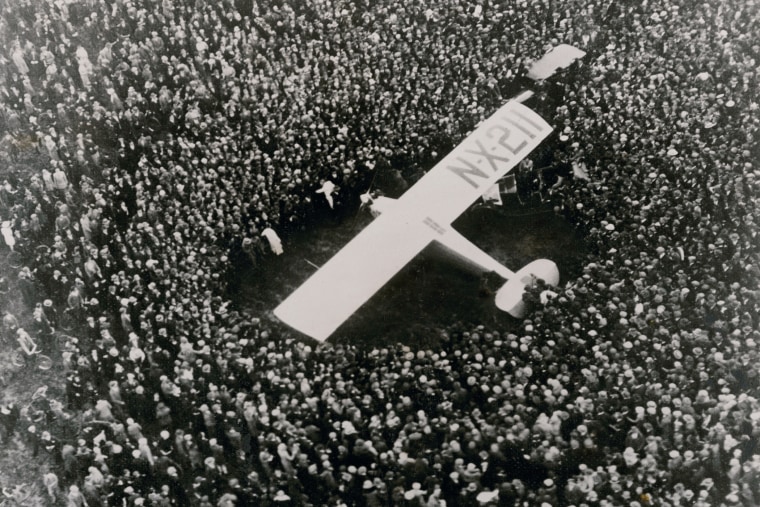On Friday night, just hours after one of his supporters was arrested in the mail-bombing case, Donald Trump headlined a rally in North Carolina where he asked a question that isn't usually part of his standard stump speech.
"America is winning because we are putting America first. So true. We're putting America first. When have you heard that last? Been a long time, hasn't it?"
Well, yes, it has been a long time. But what Trump may not know -- history has never been one of his stronger subjects -- is that the phrase has long been rejected by mainstream American political figures for a rather specific reason.
If the president wants to know when we last heard the slogan, let's go ahead and answer the question. In fact, Rachel had a great segment on this back in April 2016, when Trump first started pushing the phrase in earnest.
The "America First" movement was originally focused on keeping the United States out of the escalating war unfolding in Europe in the early 1940s. The effort was led in part by Charles Lindbergh, the famous pioneering long-distance pilot, who barnstormed the country in 1940 and 1941, capitalizing on his celebrity status. As Hitler's power spread, Lindbergh said Americans should turn a blind eye to the conflict.
His tour was sponsored by the America First Committee -- an organization that reportedly had as many as 800,000 members at its peak -- that existed to oppose U.S. intervention in the war.
Lindbergh was the movement's star. In this case, that's not a compliment.
The pilot had just returned from Europe, where he became something of an admirer of the Third Reich -- Lindbergh received a Nazi aviation medal from Goring himself -- and he wrote about protecting the West from what he called "the infiltration of inferior blood."
In fact, when the America First Committee dispatched Lindbergh to Iowa in September 1941, he delivered a speech in which he warned that American Jews were nefarious power brokers trying to drag the United States into Europe's war.
Not surprisingly, before D-Day, "America First" became inextricably linked with its hateful champion and his Nazi sympathies.
With this in mind, after World War II, no American politician wanted anything to do with the phrase, at least until Pat Buchanan tried to resurrect it in the 1990s.
When Buchanan's candidacy was rejected for its nationalistic xenophobia, the phrase disappeared, only to make a comeback in 2016, as Donald Trump's slogan of choice -- a phrase he even included in his inaugural address.
Whether the Republican is ignorant of the slogan's history, or just indifferent to its ugly past, is unclear. Either way, when Trump asks when Americans last heard the phrase, it's a question he should probably try to avoid.
